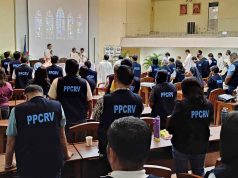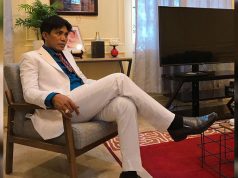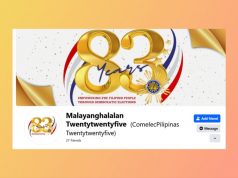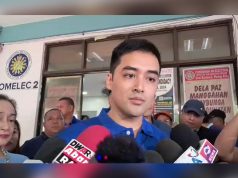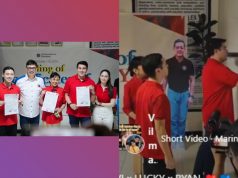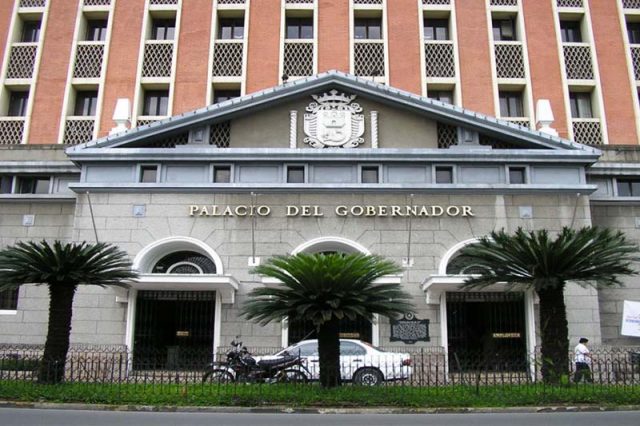
The Commission on Elections is now in hot water after its decision to inform candidates of debate topics ahead of its sanctioned forum.
At a press briefing, poll spokesperson James Jimenez said that the commission made this move so that the debates would “be fair” to the candidates.
“We would like the debates to be fair, and every candidate will have the opportunity to do whatever research they have to do in preparation for the debate because they will be given the general area around which the questions will revolve,” Jimenez was quoted as saying in a report.
He then assured the public that the candidates will not be given specific questions.
“We will give the candidates a general idea of what the topics to be discussed are, but what we will not give them are specific questions,” Jimenez said.
He, however, did not mention if a specific political bet or all the bets requested Comelec for advanced topics.
Jimenez only pointed out that the poll body made the same move in 2016, the last presidential elections.
“I’d like to make it clear, this is not unusual and this is not unfair. In any debate, even in the Pilipinas debates that we held in 2016, we did inform the campaigns about the general topics to be discussed,” Jimenez said.
He was referring to the debate series called “PiliPinas Debates 2016″ that Comelec administered in partnership with the Kapisanan ng mga Brodkaster ng Pilipinas.
These events were held ahead of the national elections that year.
Criticisms vs Comelec
For some concerned Filipinos, providing debate guests or participants with the topics or format of the debate beforehand is a normal practice.
However, releasing specific questions, giving scripts in advance and allowing on-the-spot discussions must not be allowed, according to some Filipinos.
“They need to show that they’re capable of making informed decisions instantaneously. This is simply a debate, what more if the Philippines was in a crisis,” one Twitter user said.
“Spur-of-the-moment decisions or ‘decisive’ actions or response during crisis or emergency is sometimes inevitable for a leader,” another Twitter user wrote.
Others likened the presidential and vice-presidential debates to job interviews.
“Ilang beses na kong na interview sa trabaho, walang kahit anong clue sa itatanong ng boss at ng panel,” one Twitter user said.
“When I applied for a job, there was an exam and I didn’t even know what topics were included. Hindi naman unfair yun para sa akin,” another online user tweeted.
Some Filipinos, on the other hand, accused the Comelec of allegedly giving in to one presidential bet.
“Isang request lang payag agad. Gaano kayo karupok, Comelec?” pharmacist Arshie Larga asked.
“Isa lang ang nag-request give in agad? Di kayo mashadong halata @COMELEC,” Dr. Gia Sison tweeted.
Letter of request
In an interview, Benjamin Abalos Jr., former MMDA chairman and now campaign manager, said that Ferdinand Marcos Jr. ordered him to ask Comelec if candidates could be provided with the debate’s format, information on issues to be discussed and other details before the event itself.
“So ganito, ako ‘yung inutusan ni BBM ni ating Ferdinand Marcos Jr. as the national campaign manager to write a letter sa lahat ng presidentiable at sa Comelec, na pagusapan ano ang format ng debate,” Abalos was quoted in a report as saying.
“Para kasing ginagawa sa ibang bansa, partikular sa Amerika, na lahat ng tatakbo roon sa debate ay talagang nagusap-usap,” he added.
Jimenez previously shared a photo of this letter on Twitter on February 24.
Based on the photo, the letter was sent on February 11. Comelec received it on February 14.
The COMELEC has been advised of presidential candidate Marcos’ “readiness to participate” in the #PiliPinasDebates2022. If more confirmation is needed, the COMELEC awaits the same with bated breath. Nevertheless, preparations for the #PiliPinasDebates2022 push thru. pic.twitter.com/YDHPI4gqay
— James Jimenez (@jabjimenez) February 24, 2022




